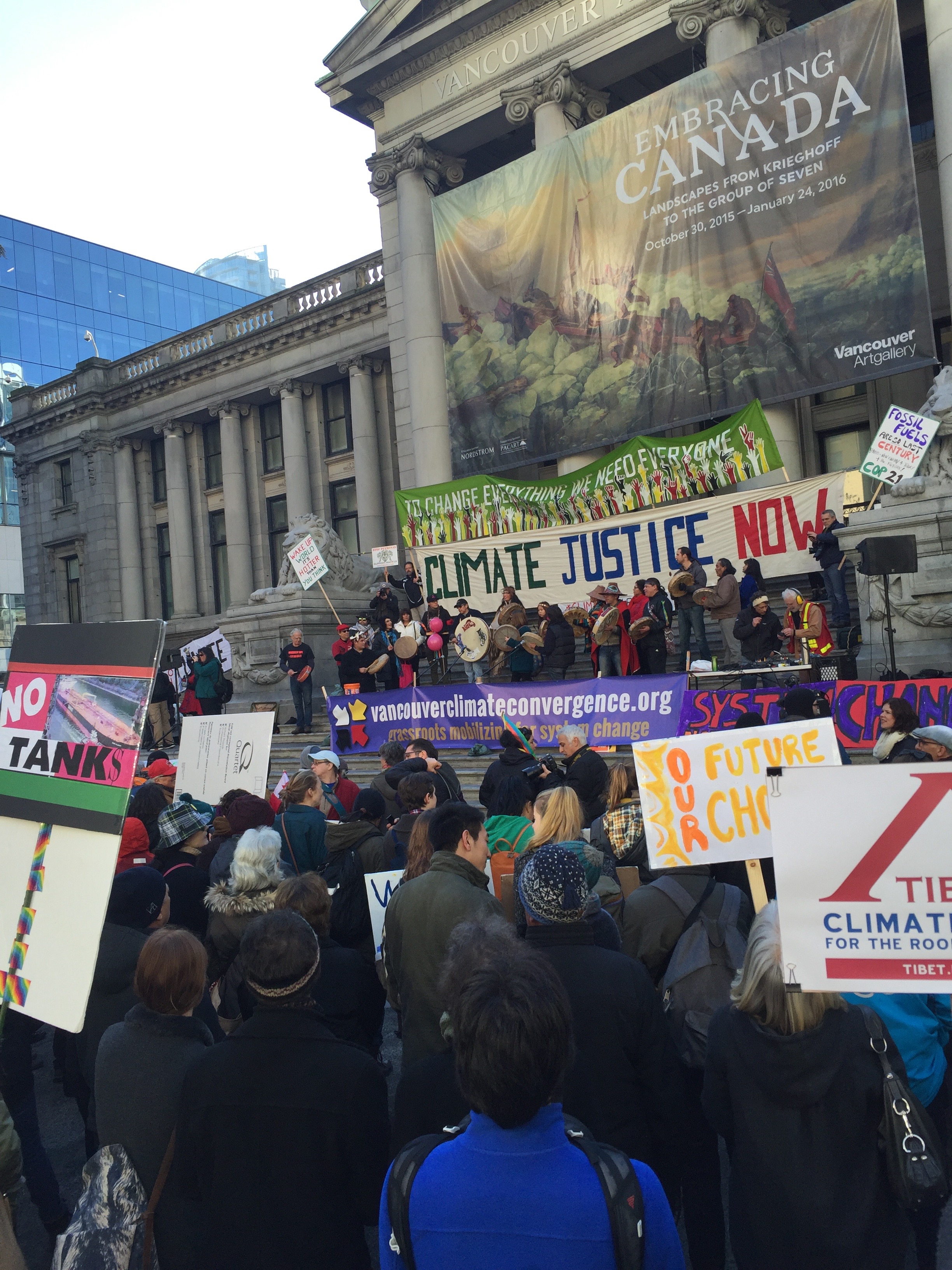Activists send message to B.C. government as COP 21 wraps up
Chandler Walter
Canadian University Press (CUP)
VANCOUVER (CUP)—Thousands braved the cold at a climate change march in Vancouver last weekend to take part and, for some, to question the direction Canada is heading.
“There are millions of people that are taking to the streets in these days to send a really loud and clear message to the world leaders that are gathering in Paris that we need immediate and meaningful action on climate change,” said Ruth Walmsley, one of the organizers of the event and a member of Burnaby Residents Against Kinder Morgan Expansion, also known as B.R.O.K.E.
Aya Peloquin, who only recently moved to Vancouver from Victoria, also attended the rally. She’s been involved with climate change events on the island in the past and was glad to see how many people came out to participate. “It’s good, especially for a bigger city, to have people show what different groups of people are thinking about and the change that we want,” she said.
However, when asked if she believed we would see any substantial change in Canada’s climate change policy under the new Trudeau-led government, Peloquin was less than optimistic: “I don’t know really; I guess we’ll see if he actually does anything.”
Canadians will see sooner rather than later, as the Paris Climate Change conference wraps up on Dec. 11, with some goals already being publicized. Mike Hudena, climate change and energy campaigner with Greenpeace Canada, wrote in an email to Greenpeace subscribers that, “The Canadian government—for the first time ever—committed to a target of limiting global warming to 1.5°C above pre-industrial levels, because anything higher would spell disaster for sub-Saharan Africa, small island nations and other vulnerable countries.”
In the recent speech from the throne, Governor General David Johnston said, “working together, the government will continue to provide leadership as Canada works towards putting a price on carbon and reducing carbon pollution.” He also explained how Canada will do more to invest in clean technologies, and to listen to input from the public, scientific evidence, and indigenous peoples while making resource and climate change decisions.
“B.C. is the only province with a carbon tax,” said Adam Kelliher, Langara College student and leader of the college’s environmental club. To implement them nationwide would benefit us—though carbon trading would be a better approach—though, either will work if the Liberal government focuses on ameliorating the climate situation through a series of progressive approaches.”
What the government lacks, Kelliher said, is the ability to interact with culture. He explained that on some social issues—like implementing birth control measures to combat resource over-consumption—any politician willing to champion such issues would have difficulty retaining their seat.
What people who are looking to take action against climate change need to do, Kelliher said, is “to realize their objective and subjective self worth. The Charter declares it, and they need to declare it for themselves. Then, once confident, antagonize the financial elite.”
He added: “It is our Charter-scribed right and ethical right to a world that is not threatened by water wars, catastrophic top soil loss, fish-stock collapse, and dismal biodiversity.”
Distributed under the Creative Commons Attribution 4.0 International License. You are able to republish or adapt this article if you provide appropriate credit to the creator, a link to the license and an indication if changes were made.


